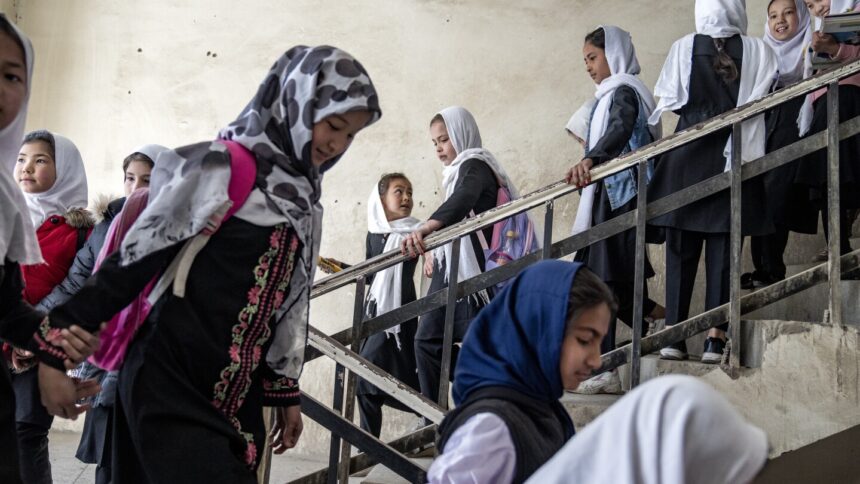The Taliban’s ban on women’s education has been a stark reminder of the regime’s blatant disregard for human rights, but a recent statement from a senior official offers a glimmer of hope. Sher Abbas Stanikzai, a senior member of the Afghan Taliban and the country’s Deputy Minister of Foreign Affairs, has called for the end to the ban on education for Afghan women and girls, stating that there is no excuse for denying them their right to education, and this move also contradicts Islamic law.
The Taliban government has barred females from education after sixth grade. Last September, there were reports authorities had also stopped medical training and courses for women. However, authorities have yet to confirm the medical training ban.
Sher Abbas Stanikzai’s public rebuke of government policy comes amid persistent international calls for the Taliban to permit girls ‘ education in secondary schools and beyond.
Speaking in Khost, a province near the Pakistan border and about 150 km southeast of Kabul, at a religious school ceremony, Stanikzai urged schools and universities for girls to reopen and added there was no reason to deny education to women and girls, “just as there was no justification for it in the past and there shouldn’t be one at all.”
“We call on the leadership again to open the doors of education,” said Stanikzai in a video shared by his official account on the social platform X. “We are committing an injustice against 20 million people out of a population of 40 million, depriving them of all their rights. This is not in Islamic law, but our personal choice or nature.”
Stanikzai’s statement is a clarion call to the international community to continue pressuring the Taliban to reverse the ban.
The Taliban’s ban on women’s education is a major obstacle to the regime’s recognition by the international community. Countries like Russia and India have been developing diplomatic connections with the Afghan authorities, but they must not turn a blind eye to the regime’s human rights abuses. The United Nations has stated that recognition of the Taliban government is unlikely, while restrictions on women’s education, employment, and movement persist. It’s time for the international community to stand firm and demand that the Taliban respect the fundamental rights of Afghan women and girls.
Stanikzai’s statement is a beacon of hope in a sea of despair. It’s a reminder that even within the Taliban, there are voices of reason and compassion. The international community must seize this opportunity to push for change and demand that the Taliban respect the fundamental rights of Afghan women and girls. The future of Afghanistan depends on it.















